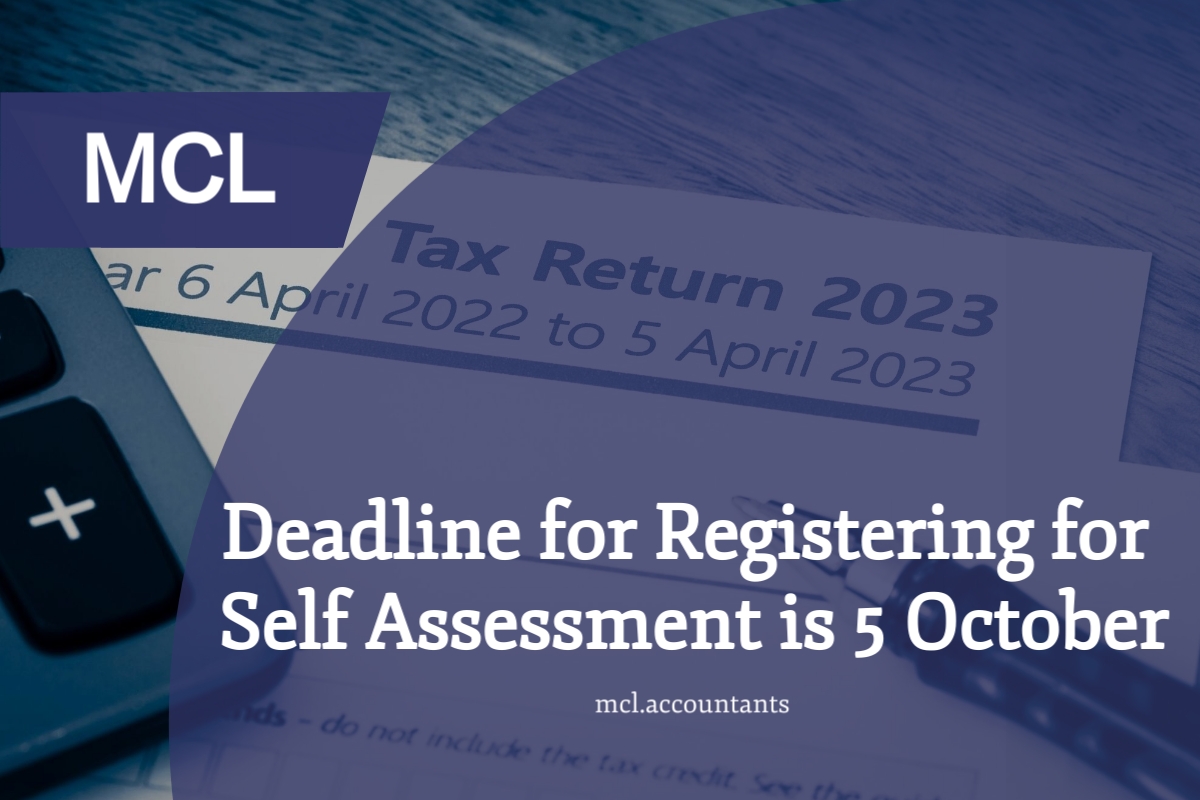Deadline for Registering for Self Assessment is 5 October
23/09/2023 - 5 minutes readThe deadline for registering for Self Assessment is 5 October.
HMRC have produced a step-by-step instruction video showing the self-employed and this video for the not self-employed on how to register online for self-assessment.
The video for the self-employed also tells customers how they can set up a delegate such as a tax agent to complete their online registration for them.

Registering for Self Assessment – Before you start
You should read the guidance on who must send a tax return.
When to complete the form?
You must tell HMRC by 5 October if you need to complete a tax return and have not sent one before. You could be fined if you do not.
You can tell HMRC by registering for Self Assessment.
How to reduce Self Assessment repayment delays
Nearly 90% of Self-assessment repayments are processed automatically without delay. The remainder leave the automated system and take longer to process.
Customers and agents should observe the following advice to reduce repayment delays:
- – do not send in voluntary returns — register for Self Assessment, and await the notice to file a return before submitting the return
- – uncleared credit — do not submit a repayment claim within 14 days of making a payment
- – ensure your address is up to date — clients with correspondence returned to the HMRC return letter service will encounter further checks
- – bank sort code and account number — check these are accurate before submitting a repayment claim
- – deceased clients — ensure any capacitor is notified to HMRC before submitting a return on which a repayment is requested
- – previously bankrupt clients — ensure the repayment request details are submitted using the post-bankruptcy Unique Taxpayer Reference (UTR)
- payable orders — encourage clients to receive their repayment electronically
A full list of potential repayment inhibitors is included in Self Assessment Manual 113010.
Income Tax Self Assessment Returns — new information required on disposals of Excluded Indexed Securities
For income tax purposes, the Self Assessment tax return from the tax year ended 5 April 2023 will include a box for individuals to declare their gains on excluded indexed securities (EIS). This information is being requested to assist HMRC in assessing disposals of securities and to inform policy making in this area. The information to be included is the total gains from the disposal of EIS during the year, before the effect of any losses or reliefs.
Most software providers have updated their software to accommodate the new requirements. However, in certain cases, individuals may be dependent on financial institutions providing them with transactional information for the tax year in question.
We are aware that some financial institutions will not be in a position to provide this information to their customers for the 2022 to 2023 fiscal year. We therefore ask individuals to take reasonable care to make arrangements to have this information available for their 2022 to 2023 returns. However, we understand that this will not always be possible by the filing deadline.
HMRC expects individuals preparing their Self Assessment tax return to take all reasonable steps to ensure that the tax return is correct and complete to the best of their knowledge.
In cases where individuals are not able to obtain all the information required for the return, they should complete the tax return on the basis that appears most appropriate and should include full details of the points on which they are uncertain in the return. In particular, disclosure should be made under ‘any other information’ if they know they may have disposed of EIS assets in the period and are unable to quantify the amount of the gains to which this applies.
If the information should become available after the return has been filed, but within the deadline for amendment, investors should file an amendment to the return including the EIS details.
Further details of HMRC’s Self Assessment legal framework and approach to provisional and estimated information can be found in HMRC internal manual SALF206.
How can MCL Accountants help?
Contact MCL Accountants on 01702 593 029 if you would like us to assist you with registering for Self Assessment or if you need any assistance with the preparation and submission of your business accounts and self-assessment tax returns to HMRC
- ABOUT
- REQUEST A QUOTE
Ishan provides financial management, taxation and transactional advice to business entities of all sizes. His expert areas include statutory compliance, business taxation, personal tax & transactional processing and systems. Industry sectors include professional services, retail, hospitality and entertaining & media and advertising services.

0 Comments